Survey and Database on Israel’s Scientific foreign Relations on a national and institutional level

Israel’s scientific and technological foreign relations are multiple and diverse. The list of Israeli bodies which have bilateral or multilateral agreements with foreign entities on scientific and technological topics includes universities, colleges, the National Academy of Sciences, government agencies, institutions and public authorities, research institutes and more. The Samuel Neaman Institute won a tender issued […]
Science & Technology Education in Israel: Selected Indicators for the Development of a Risk Management Strategy regarding Possible Future Shortages of S&T Teachers in Upper-Secondary Schools
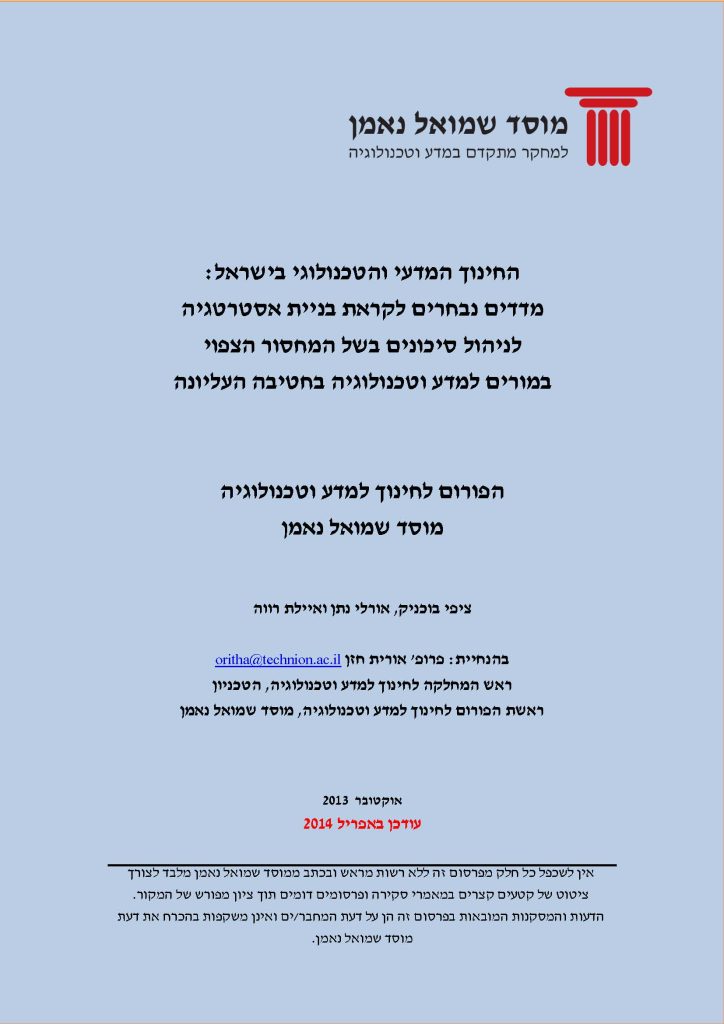
The Forum for Science and Technology Education has been launched in 2013 in order to establish and encourage cooperation among different sectors in Israel to promote K-12 science, technology, engineering and mathematics (STEM) education. The importance attributed to STEM education and the need to increase the number of high-school students who choose to study STEM […]
Evaluating the Infrastructure Program of the Science and Technology Ministry
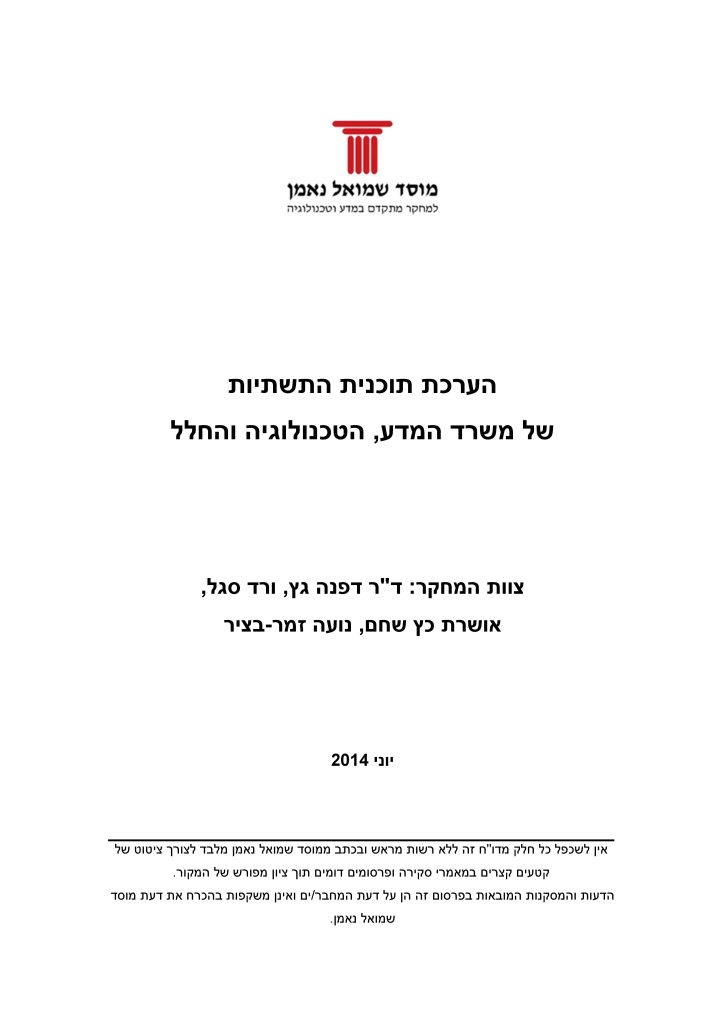
The Scientific Infrastructure Program of the Ministry of Science and Technology was launched in 1995 in an attempt to bridge the gap between basic and applied research. The program is targeted in stimulating the “maturity phase” of potential applied technologies. Moving basic research towards an applied research track may encourage more efficient utilization of the […]
Clean Energy Innovation Policy in Israel: Identifying Fundamental Principles through a Case Study of Smart Grid Policy
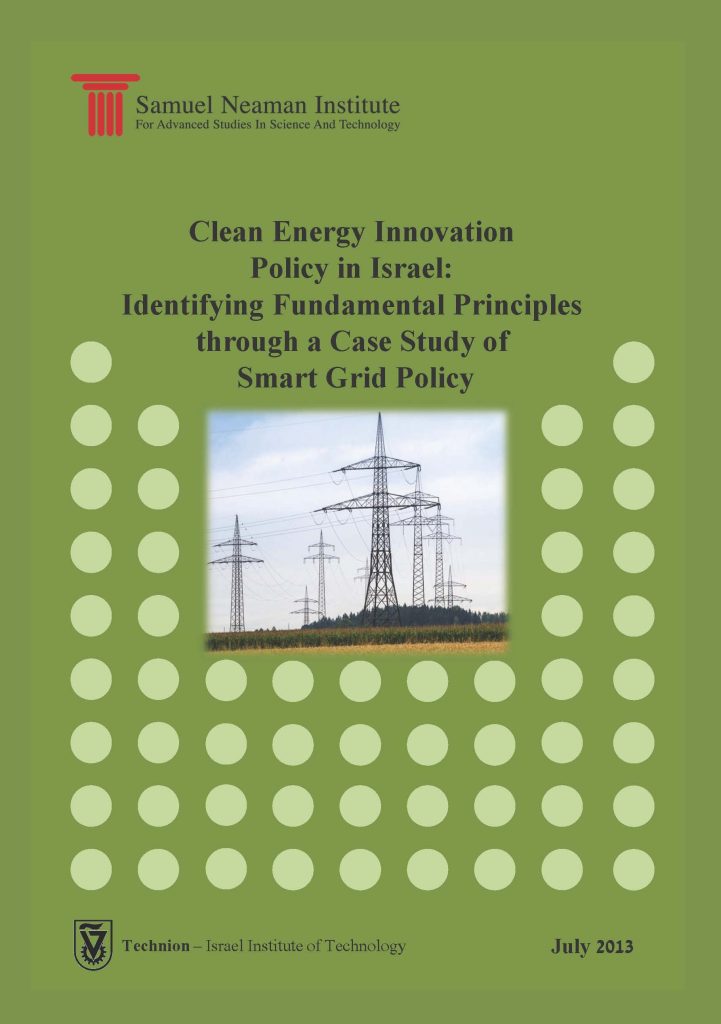
This project has been conducted in cooperation between the Samuel Neaman Institute for Advanced Studies in Science and Technology (SNI) and the London School of Economics and Political Science (LSE). The goal of the project has been to analyze policy lessons emerging from Israel’s successful efforts to spark, direct, and accelerate the process of technological […]
Predictions for human resources in science and technology :Models and Indicators
This work was commissioned by the subcommittee, Academia-Industry Relations of the National Council for Civilian R&D (Molmop). One of the goals of this committee is a re-examination of the suitability of the training provided by higher education institutions for the needs of the future economy. There is an agreement among policy makers and academics that […]
Science , Technology and Innovation Indicators in Israel: An International Comparison (Fourth edition)
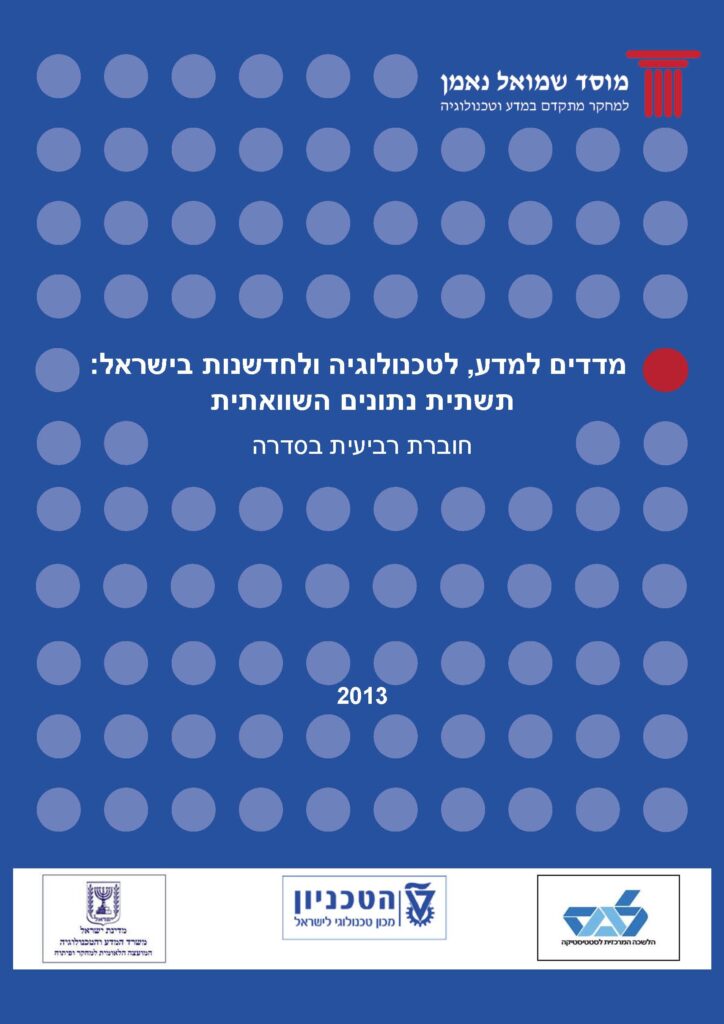
Neaman Institute is pleased to present the Fourth edition of the “indices of Science, Technology and Innovation in Israel: An International Comparison.” This report is published in cooperation with the National Council for Research and Development Israeli Central Bureau of Statistics. This publication contains many key figures for Israel regarding science and technology input and […]
An Examination of the Collaboration between Industry and the Technion’s Nanotechnology Infrastructure Centers

This research was invited by the Russell Berrie Nanotechnology Institute (RBNI) in order to increase the collaboration between the industry and the Technion’s nanotechnology Infrastructure centers. The research includes a comprehensive survey of industrial companies that have used the Technion’s nanotechnology Infrastructure centers and industrial companies in the nanotechnology fields and other fields that can […]
A comparative study on the scientific and technological research in Israel and some middle eastern countries, using quantitative indicators, second ed
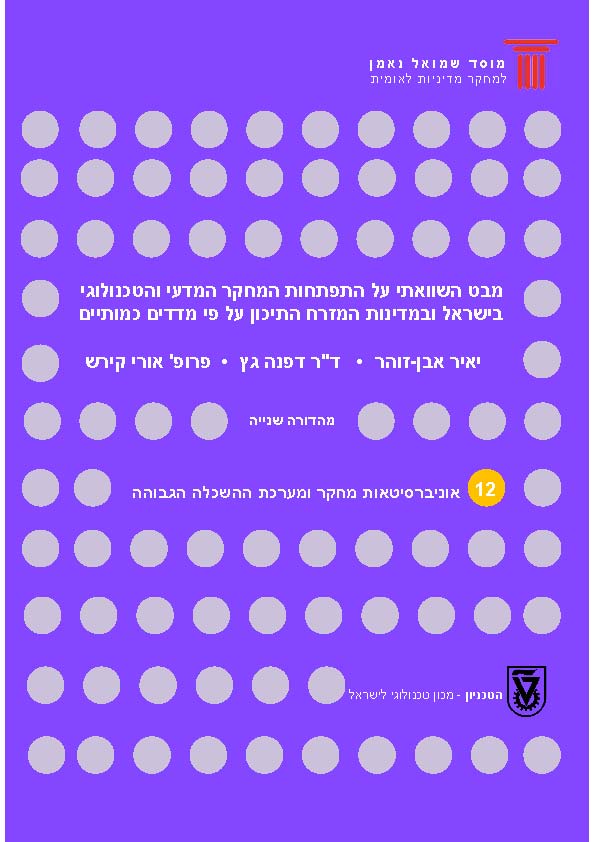
The study presents a comparative examination of the development process of scientific and technological research that has taken place in the Middle East, especially in the more advanced countries, and in Israel. The data presented are based on two main indices: the number of publications and the average citations per publication. The data indicate that […]
Strategic Innovation Policy (STE-WP-44)
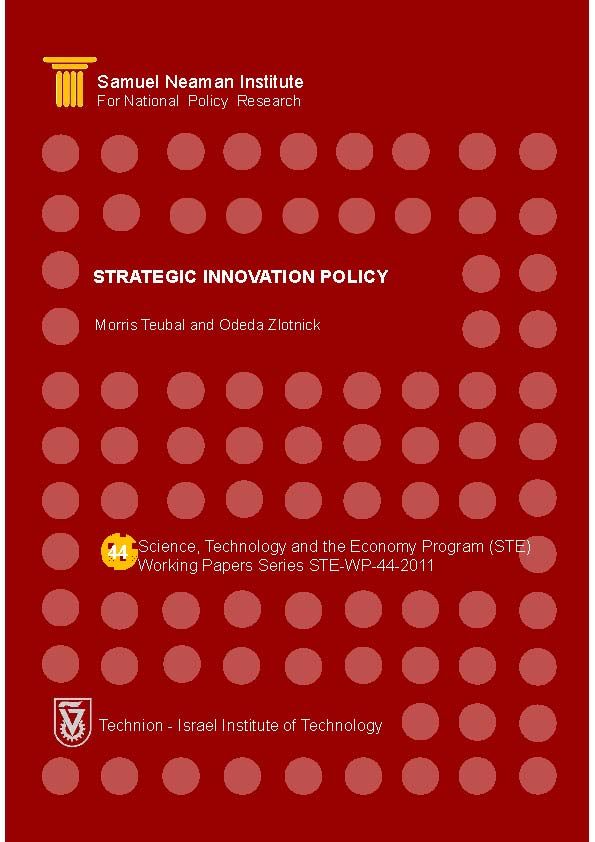
Evolutionary Interpretation of VC Policy in Israel, Germany, UK and Scotland (STE-WP-45)
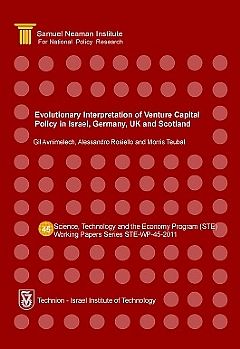
Despite many attempts to develop high-impact VC policies during the 1990s in Europe , most VC markets in Europe are still underdeveloped. Many of these policies were based on ‘traditional’ VC policy involve a mix of monetary incentives and institutional changes. In this paper, we present an alternative evolutionary VC policy, which is based on […]
